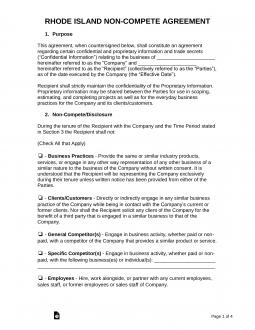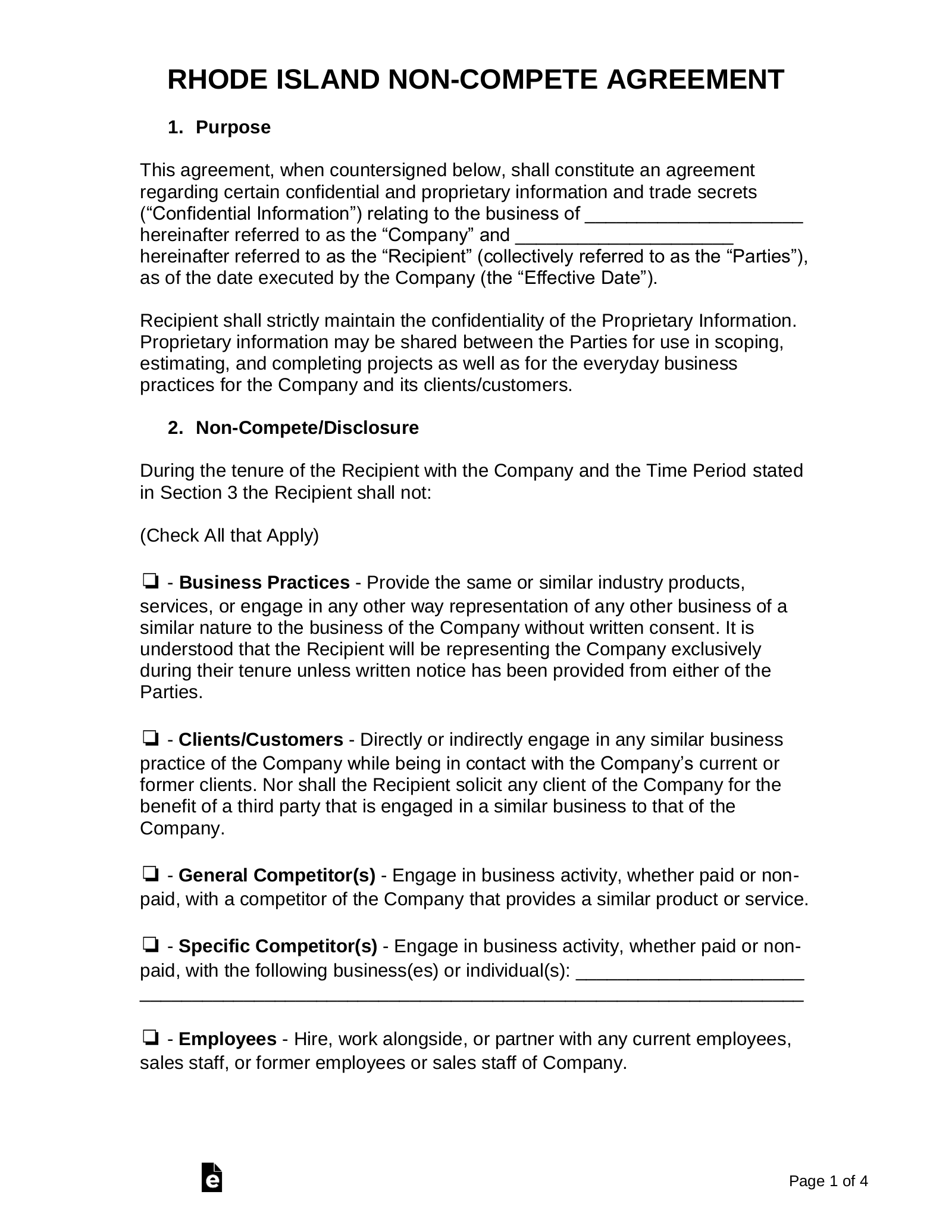Updated February 27, 2024
A Rhode Island non-compete agreement allows an employer to restrict an employee, after termination, from participating in the same business industry. A non-compete needs to specifically outline a time period and geographical area that defines the employee’s restraints.
Laws
Legally Enforceable?
Yes, a non-compete is legal in Rhode Island with the following exceptions:[1]
- Low-wage workers. Employee who is classified as nonexempt under the Fair Labor Standards Act, 29 U.S.C. § 201-219 (250% of the Federal Poverty Level);
- Internships. Undergraduate or graduate students that participate in internships or short-term employment relationships, whether paid or unpaid; or
- Minors. Employees age 18 years or younger.
Protectable Interest
An employer needs to also show proof that the employee competing against them would expose a protectable interest. The Supreme Court has ruled in the past that “the desire to be free from competition, by itself, is not a protectable interest.”[2]
Reasonableness
In determining if a non-compete is valid, “the crucial issue is reasonableness.” The test that determines reasonableness is dependent on the particular circumstances surrounding the agreement.[2]
Continued Employment
Rhode Island has determined that continued employment satisfies the requirement of sufficient consideration for a non-compete.[3]
Physicians (prohibited)
It is unenforceable to restrict a licensed physician from being able to practice medicine for any period of time or geographical area.[4]
Attorneys (prohibited)
It is prohibited for an attorney to enter into a non-compete that restricts them from practicing law.[5]
Maximum Term
1 year and should be geographically limited to the areas served by the employer.[6]
Blue Penciling
Rhode Island imposes a partial-enforcement rule, which allows a court to modify an unreasonable agreement if bad faith or overreaching is not found in the agreement. If the non-compete was made in good faith, the court would enforce the agreement to protect the business’s legitimate interests without imposing undue hardships on the employee.[2]


